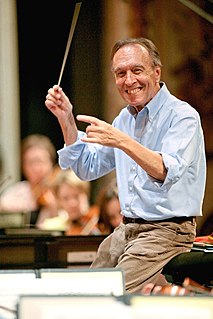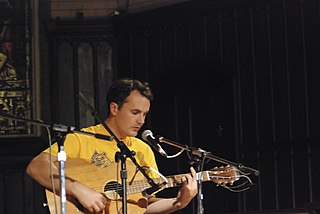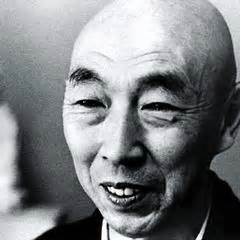A Quote by Wallace Stevens
One must have a mind of winter to regard the frost and the boughs of the pine trees, crusted with snow, And have been cold a long time, to behold the junipers, shagged with ice, the spruces, rough in the distant glitter of the January sun, and not to think of any misery in the sound of the wind, in the sound of a few leaves, which is the sound of the land, full of the same wind, blowing in the same bare place for the listener, who listens in the snow, and, nothing herself, beholds nothing that is not there, and the nothing that is.
Related Quotes
I love the sound of snow... You can hear it even if you are only standing on a balcony. [The sound] is only minimal, not even a real noise: a breath, a trifle of a sound. You have the same thing in music: if in the score there is a pianissimo marked that ends in nothing. Up thee you can feel this 'nothing'. With an orchestra it is very difficult to achieve it. The Berlin Philharmonic manage it sometimes.
We never look deeply into the quality of a tree; we never really touch it, feel its solidity, its rough bark, and hear the sound that is part of the tree. Not the sound of wind through the leaves, not the breeze of a morning that flutters the leaves, but its own sound, the sound of the trunk and the silent sound of the roots.
Think of the sound you make when you let go after holding your breath for a very, very long time. Think of the gladdest sound you know: the sound of dawn on the first day of spring break, the sound of a bottle of Coke opening, the sound of a crowd cheering in your ears because you're coming down to the last part of a race--and you're ahead. Think of the sound of water over stones in a cold stream, and the sound of wind through green trees on a late May afternoon in Central Park. Think of the sound of a bus coming into the station carrying someone you love. Then put all those together.
When we sit in meditation and hear a sound, we think, 'Oh, that sound's bothering me.' If we see it like this, we suffer. But if we investigate a little deeper, we see that the sound is simply sound. If we understand like this, then there's nothing more to it. We leave it be. The sound is just sound, why should you go and grab it? You see that actually it was you who went out and disturbed the sound.
You know the Zen question, 'The Bodhisattva of Great Mercy' has a thousand hands and a thousand eyes; 'which is the true eye?' I could not understand this for a long time. But the other day, when I looked at the pine trees bending before the cold blasts from the mountain, I suddenly realized the meaning. You see, all the boughs, branches, twigs, and leaves simultaneously bend to the wind with tremendous vigor.
Winter is the time for comfort, for good food and warmth, for the touch of a friendly hand and for a talk beside the fire: it is the time for home. It is no season in which to wander the world as if one were the wind blowing aimlessly along the streets without a place to rest, without food, and without time meaning anything to one, just as time means nothing to the wind.
The fields are snowbound no longer;
There are little blue lakes and flags of tenderest green.
The snow has been caught up into the sky-
So many white clouds-and the blue of the sky is cold.
Now the sun walks in the forest,
He touches the bows and stems with his golden fingers;
They shiver, and wake from slumber.
Over the barren branches he shakes his yellow curls.
Yet is the forest full of the sound of tears....
A wind dances over the fields.
Shrill and clear the sound of her waking laughter,
Yet the little blue lakes tremble
And the flags of tenderest green bend and quiver.
Each solstice is a domain of experience unto itself. At the Summer Solstice, all is green and growing, potential coming into being, the miracle of manifestation painted large on the canvas of awareness. At the Winter Solstice, the wind is cold, trees are bare and all lies in stillness beneath blankets of snow.
And if there are no cars or planes, and if no one’s Uncle John is out in the wood lot west of town banging away at a quail or pheasant; if the only sound is the slow beat of your own heart, you can hear another sound, and that is the sound of life winding down to its cyclic close, waiting for the first winter snow to perform last rites.




































